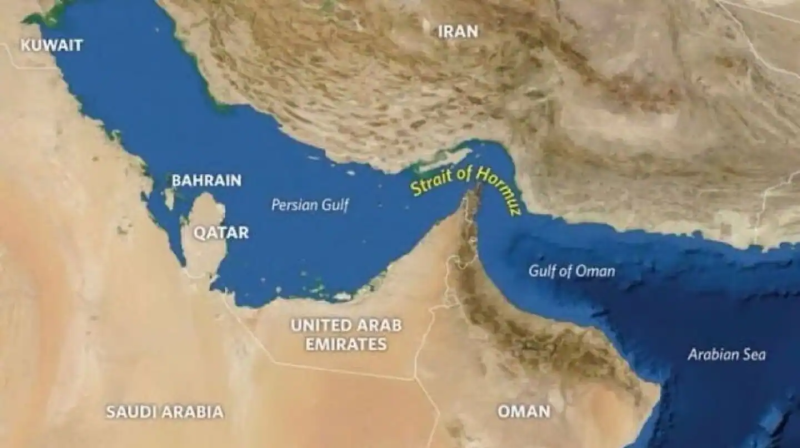- Body of Osman Hadi Returns to Dhaka From Singapore Late |
- Fakhrul condemns attacks on media, calls for unity, justice |
- 2 cops among 4 hurt in clash outside Indian Assit H.C. in Ctg |
- Inqilab Moncho urges people to avoid violence |
- Hadi’s death: Prothom Alo, Daily Star offices set afire |
US Urges China to Stop Iran Blocking Strait of Hormuz

The United States has urged China to help ensure that the Strait of Hormuz remains open, warning that any attempt by Iran to block the key oil shipping route would have severe global economic consequences.
US Secretary of State Marco Rubio made the appeal in a televised interview on Fox News on Sunday, as tensions continue to rise following American strikes on Iranian nuclear facilities.
“I encourage the Chinese government in Beijing to call them [Iran] about that, because they heavily depend on the Straits of Hormuz for their oil,” Rubio said.
His remarks came in response to a report by Iran’s state-run Press TV claiming that the Iranian parliament had approved a proposal to close the Strait. However, the final decision lies with Iran’s Supreme National Security Council.
“If they close the Strait, it would be economic suicide for them,” Rubio warned. “We have options to respond, but it would hurt other countries’ economies much more than ours.”
Strategic Chokepoint at Risk
The Strait of Hormuz is one of the world’s most strategic maritime chokepoints, with nearly 20% of global oil supplies passing through it. Major Middle Eastern oil and gas producers use the route to export energy to markets in Asia, Europe, and beyond.
Any disruption in traffic through the narrow waterway would likely trigger a spike in oil prices and threaten the stability of global supply chains. On Sunday, Brent crude surged to $78.89 per barrel—its highest price in five months—following the US airstrikes.
“The US has now positioned an overwhelming defence presence in the region to prepare for any Iranian counterattack,” said Saul Kavonic, Head of Energy Research at MST Financial. “But the risk of further escalation remains high, and so do the stakes for global oil prices.”
China Caught in the Middle
China, the world’s largest importer of Iranian oil, imported more than 1.8 million barrels per day from Iran last month, according to ship-tracking firm Vortexa. Other Asian economies—including India, Japan, and South Korea—also rely heavily on oil shipments through the Strait.
Energy analyst Vandana Hari warned that closing the Strait would isolate Iran diplomatically and economically. “Iran has little to gain and too much to lose. It risks antagonising neighbouring Gulf states and angering China—its biggest customer,” she said in an interview with the BBC.
Global Fallout from US Strikes
Tensions escalated further over the weekend after US forces struck several Iranian nuclear sites. President Donald Trump declared that the US had “obliterated” key enrichment facilities, though Iran downplayed the damage and claimed that the fortified Fordow site had only suffered minor impact.
The International Atomic Energy Agency (IAEA) said it was unable to assess the full extent of the damage due to safety concerns at the site.
Beijing, meanwhile, strongly criticised the US strikes. China’s UN Ambassador Fu Cong urged restraint, warning against “the impulse of force and adding fuel to the fire.” He called for an immediate ceasefire and a return to diplomacy.
An editorial in China’s state-run Global Times accused the US of destabilising the Middle East and warned that Washington’s involvement had pushed the conflict to the brink of becoming “uncontrollable.”
As the crisis deepens, Washington’s appeal to China underscores the geopolitical stakes of maintaining free navigation in the Strait of Hormuz and avoiding a wider regional war.

